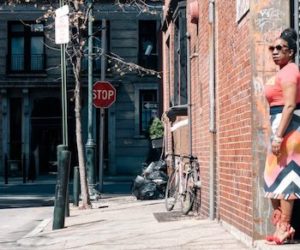
Tarana Burke
*Tarana Burke was born on this date in 1973. She is an advocate for Black racial justice and women’s rights.
Burke has worked in social justice, black arts, and culture in New York City for over 30 years. Her long and varied professional career started in Selma, AL, where, for over a decade, she worked with the 21st Century Youth Leadership Movement, helping to develop hundreds of youth leaders across the country at the National Voting Rights Museum & Institute; she served as a curatorial and special projects consultant and helping to organize the annual commemoration and celebration of the Selma Voting Rights Struggle; and as Executive Director of the Black Belt Arts and Cultural Center where she created and oversaw cultural community programs designed for underserved youth.
Her work in Selma earned her a consulting position while producing the 2014 Oscar-nominated film SELMA, directed by Ava DuVernay, whom she met while serving as Managing Director of Art Sanctuary, a black arts organization based in Philadelphia. Burke is passionate about social justice and intersectionality. She has committed to serving the causes of people of color and marginalized groups, focusing on young women and girls. She has organized work from the deep South to the East Coast, dealing with issues ranging from economic justice to police brutality.
In 2003, she focused on young women of color and co-founded Jendayi Aza, an African-centered Rites of Passage program for girls. That program eventually evolved into Just Be, Inc. Since its inception, Just Be has served hundreds of girls nationwide through unique programming and workshops. She has a teenage daughter and is the program director of Girls for Gender Equality in Brooklyn.
Her specialties are Non-profit Management, Organizational Development, Facilitation, Training, Curriculum Development, Workshop Design, Program Development/Management/Evaluation, Event Planning/Coordination, and Development/Fundraising (grant writing).
In 2006, she was inspired to create the #MeToo movement while counseling a young girl. Burke started the hashtag over a decade ago after her experience with sexual violence.